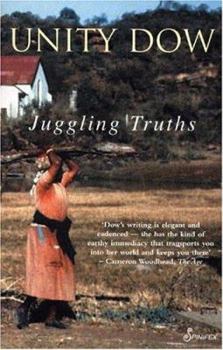Juggling Truths
The Botswanan childhood of Monei Ntuka is shaped by stories from her mother, father, and grandmother as well as from the colonizers and the Christian church in this novel about the tensions between modernization and tradition in postcolonial Africa.
Format:Paperback
Language:English
ISBN:1876756381
ISBN13:9781876756383
Release Date:September 2004
Publisher:Spinifex Press
Length:173 Pages
Weight:0.40 lbs.
Dimensions:0.5" x 5.5" x 8.6"
Customer Reviews
1 rating
From Cincinnati
Published by Thriftbooks.com User , 19 years ago
I don't read literature generally, and read even less African literature (I think perhaps Chinua Achebe's "A Man of The People" is the only other), but I really loved reading this book. Dow's style is conversational, and she is able to tell this story both in the voice of the girl it is about, as well as in that of the woman she's become. More than once I thought about how Harper Lee did the same thing in "To Kill a Mockingbird." Their stories are about larger ideas and problems, but they so richly describe childhood that at times you feel as if you're actually there in the story. (The obviously important thing about comparative literature is that you learn about differences and similarities, and Dow shows this American how alike children in Ohio are to those in Botswana.) I was particularly taken with Dow's deliberate revelation of courtship and marriage between Nei's grandparents. I read one passage over and again three times in one sitting, because it is so beautifully described, and in such an endearing context. I don't pretend to completely understand how difficult it can be to straddle two strikingly different "worlds," but after reading this story I find myself a bit closer.





